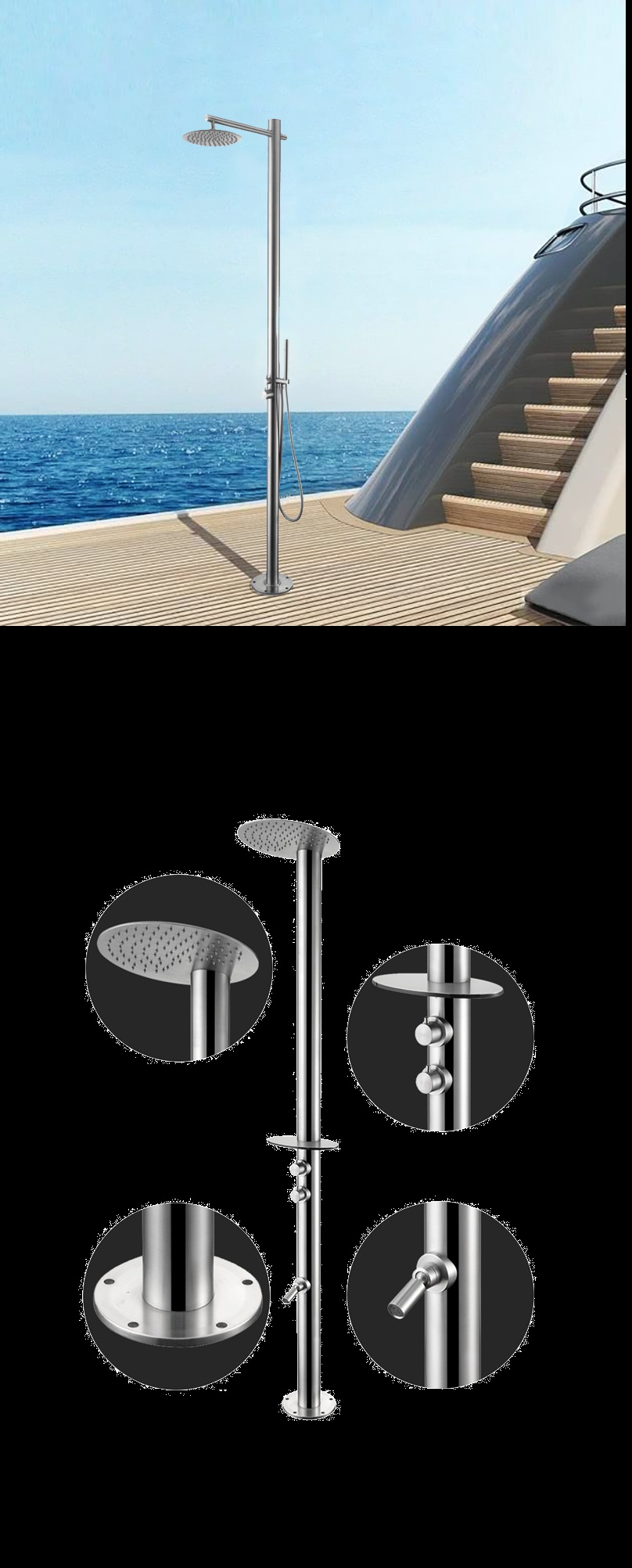|
|
Outdoor Showers- Installations
Installing an outdoor shower can be a refreshing addition to your outdoor space.
Here are general steps to guide you through the installation process:
Determine the location: Choose a suitable location for your outdoor shower. Consider factors like privacy, accessibility to water supply and drainage, and proximity to the main structure.
Water supply: Connect the shower to an existing water supply or install a new water line specifically for the outdoor shower. Consult with a plumber to ensure proper connections and adherence to local plumbing codes.
Drainage: Plan for proper drainage to prevent water pooling. A common approach is to install a drainage system with a slope that allows water to flow away from the shower area. Consider using gravel or permeable surfaces to facilitate water absorption.
Shower structure: Decide on the type of shower structure you want, such as a freestanding shower or one attached to a wall or fence. Consider the materials suitable for outdoor use, such as stainless steel, treated wood, or weather-resistant plastics.
Install plumbing fixtures: Install the showerhead, mixing valve, and any additional fixtures like a handheld showerhead or foot shower, based on your preferences. Ensure proper sealing and waterproofing to prevent leaks.
Flooring: Choose a suitable flooring material that is slip-resistant and can withstand outdoor conditions. Options include concrete, tiles, natural stone, or wood decking.
Privacy and enclosure: Consider incorporating privacy elements such as walls, curtains, or plants to create a secluded area for the outdoor shower.
Electrical considerations: If you plan to include lighting or other electrical components, ensure proper electrical wiring and adherence to safety guidelines. Consult with a licensed electrician for installation.
Final touches: Test the water flow and make any necessary adjustments. Add finishing touches such as decorative elements, hooks for towels, and storage for shower essentials.
It is important to note that local regulations and building codes may vary, so it is advisable to check with your local authorities before proceeding with the installation. Additionally, hiring professionals, such as plumbers or contractors experienced in outdoor shower installations, can ensure a safe and efficient installation process.
|
|

|
|
|
|
|
|
|
|
|